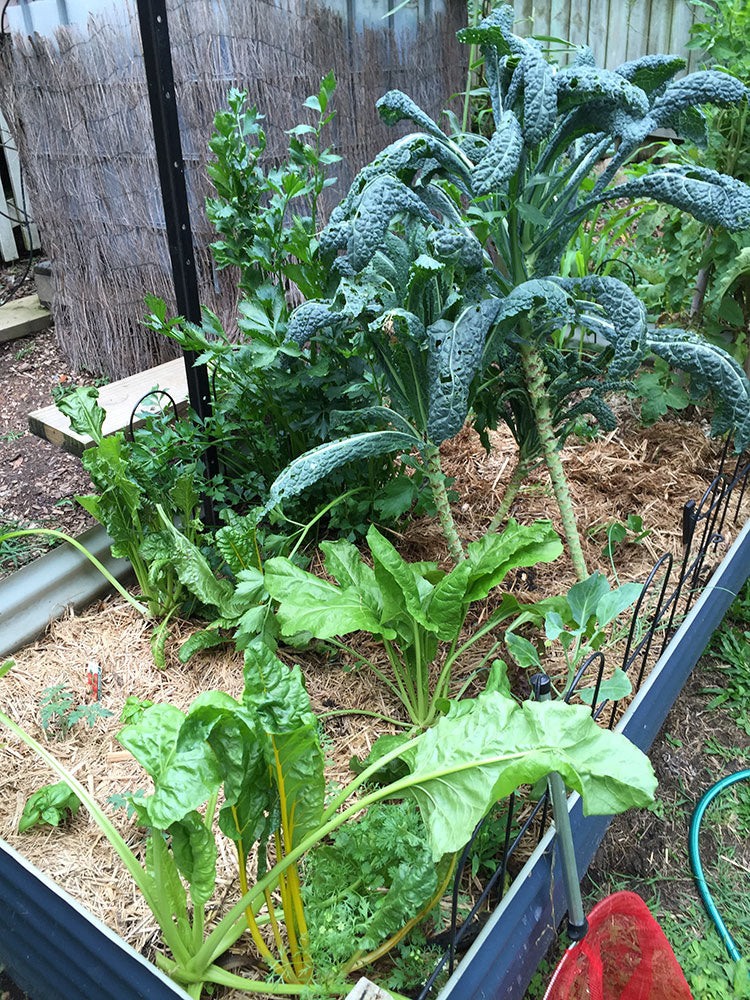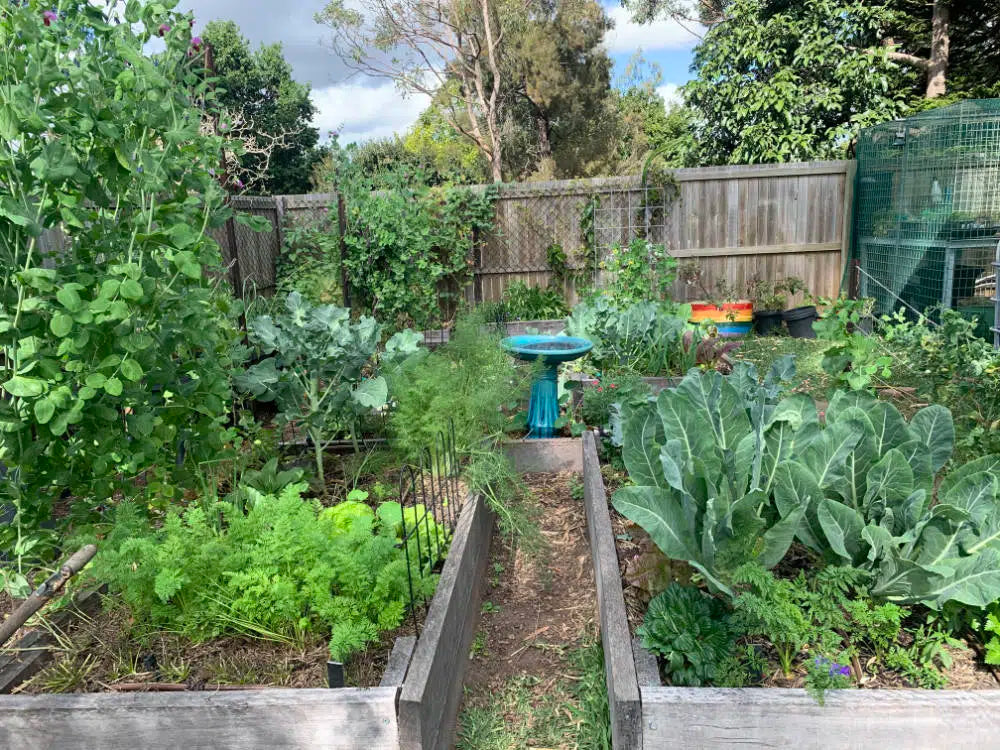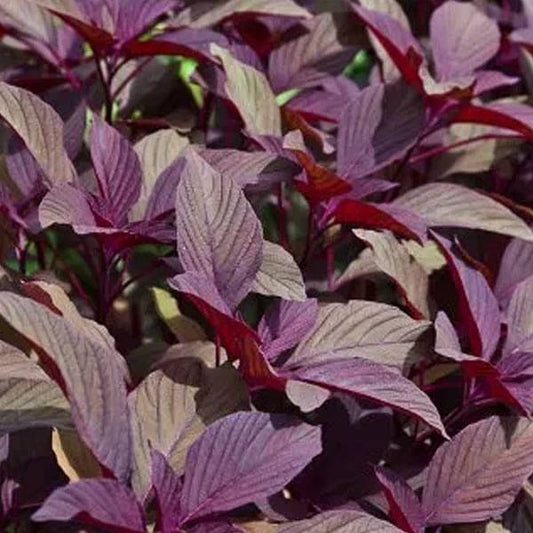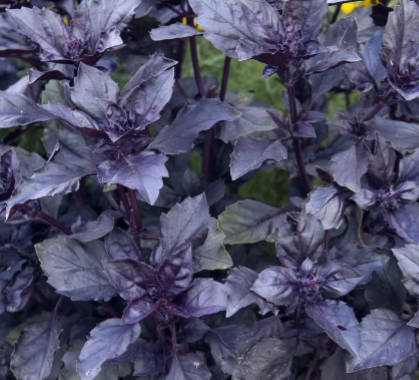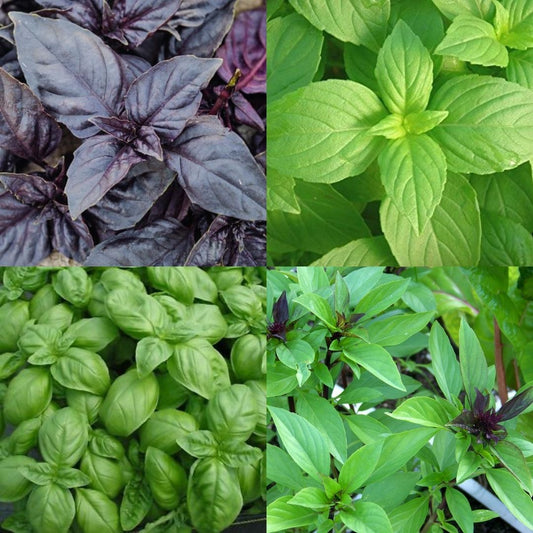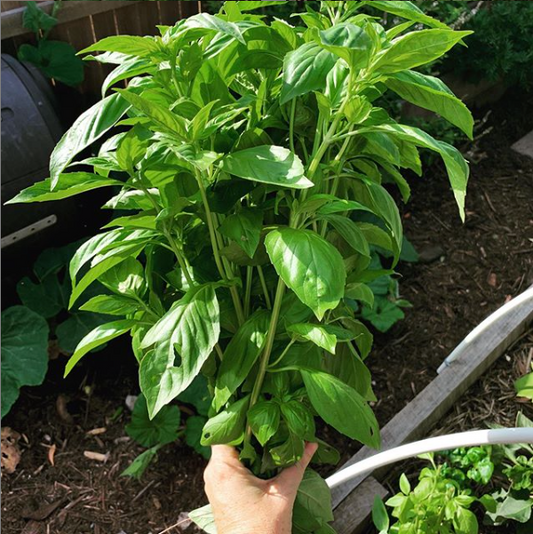Growing food is fast becoming a lost art. It’s feared, it’s unknown, it’s challenging, it’s rebellious. But it doesn’t have to be hard. Join me in the Love of Dirt podcast where we explore topics around growing food, fair food and sustainable living.
Subscribe or listen to new episodes here.
As the weather heats up for us, there is nothing more important than keeping up moisture to your vegetable patch and the best way to do that is to mulch your garden.
Mulching your garden prevents your garden from drying out, and can have the added benefit of improving your soil.
When it comes to choosing the right mulch for your garden you may find an overwhelming number of options at your local garden centre, so understandably it can be confusing as to what is the best options.
What mulches we use for our veggie patch
There are a few things to consider when mulching your vegetable garden.
Firstly, we choose a mulch that breaks down easily, but is durable enough to last the season. When we setup our beds for the nextseason, it's a matter of layering, rather than scraping it to the side.
Secondly we need a mulch that is going to retain moisture throughout the day. It gets super hot in our sub-tropical climate so anything that is inorganic such as rocks or gravel is just going to cook our plants.
We opt for a straw or hay, such as Sugar Cane Mulch or Lucerne. Mostly we use sugar cane mulch as it doesn't have seeds and it's readily available to us (and quite affordable). My second choice Lucerne as it is full of nitrogen so if you have poor soil I would opt for this as it will give your soil a boost. As the country is in drought, I would currently avoid lucern and leave it for farmers who need to feed their animals.
For our paths we use Tea tree mulch, it's a little more durable and also helps keep the white ants away from our untreated raised beds.
What mulches I would avoid for vegetable gardens
Things I would avoid for your vegetable garden would be wood chips as they are slower to break down and can draw nitrogen from the soil as it breaks down (so it takes away nutrients before it adds to it).
Any kind of inorganic mulch such as rocks or gravel as they will heat up your garden beds too much in the warmer months and is harder to maintain when you're rotating crops.
Lawn clippings, will heat up before it breaks down, plus loads of weeds will be added to your bed (add these to your compost instead).
Remember unless you are purchasing organic mulch, it's likely that your mulch can contain pesticide residue. So where possible opt for organic.


